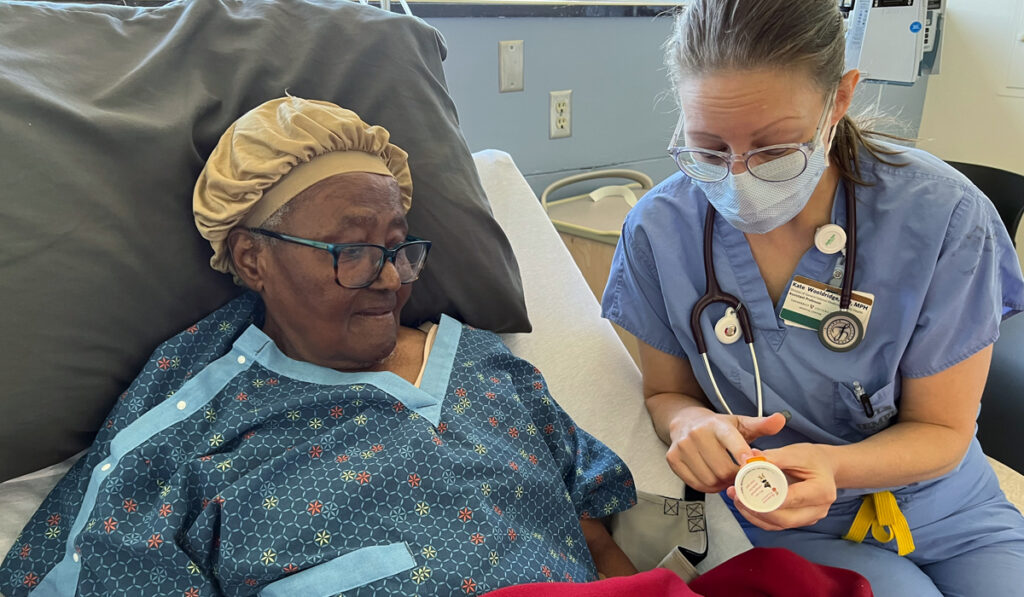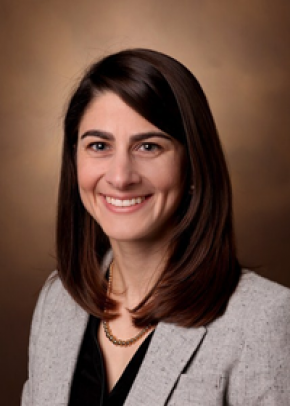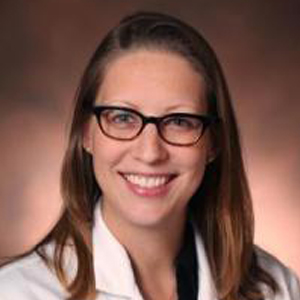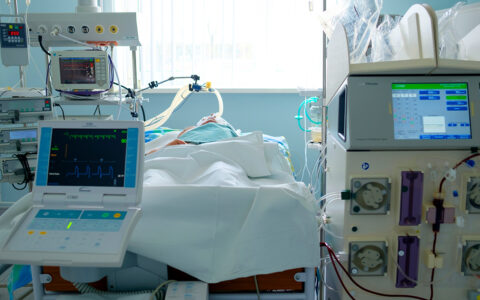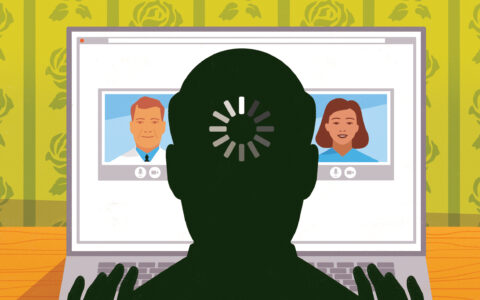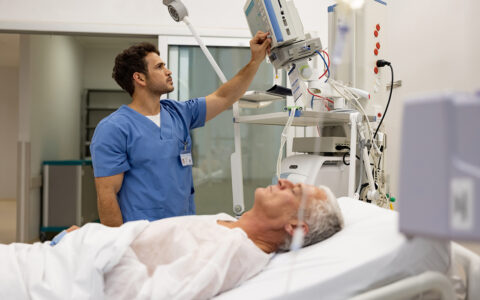Vanderbilt University Medical Center was recognized by the Institute for Healthcare Improvement in March 2022 as a level-two Age-Friendly Health System, adhering to the highest standards of care for older adults.
The Age-Friendly Health System standards require participating institutions to implement the 4Ms framework which focuses on four prominent areas: what matters, medication, mentation and mobility.
“We are the first and only hospital in the state to receive this recognition for implementing the 4Ms,” said Mariu Duggan, M.D., clinical director of geriatric operations at Vanderbilt University Hospital.
First adopted within Vanderbilt’s Acute Care for Elders unit in 2019, the 4Ms framework is also now a key component of care within Adult Acute Medicine. This initial expansion was supported by an award from the West End Home Foundation and is part of larger plans to incorporate the care model throughout the Vanderbilt health system.
Gauging Patients’ Goals
Older adults often face a wide range of health challenges, and they may not be aware of all their health care options or have the appropriate language or ability to advocate for their needs. Thus, the 4Ms framework centers on learning what matters most to each patient and then creating a care plan that aligns with those needs.
While addressing concerns about mental activity and mobility, the 4Ms framework ensures that medication does not interfere with aspects of health and wellbeing that have been identified by the patient as their top goals.
“We are the first and only hospital in the state to receive this recognition for implementing the 4Ms.”
What Matters
A key driver of the successful adoption of the 4Ms at Vanderbilt, particularly the “what matters” element, includes an ongoing collaboration between the Division of Geriatric Medicine and the Section of Hospital Medicine.
“Within hospital medicine, we run a service line that includes a hospitalist with additional training and interest in taking care of older adults, and nurse practitioners who are trained in geriatric inpatient care,” said Kate T. Wooldridge, M.D., an assistant professor of clinical medicine within the Section of Hospital Medicine.
Although the dedicated group embraced the 4Ms framework, Wooldridge noticed that the rapid pace of hospital medicine can lead to inconsistent application of the best-practices plan.
“Patients come in with different levels of functioning, different setbacks, and different hopes for the future. This is a way to really personalize their health care in the inpatient setting.”
“One of the challenges we face is making sure that every provider who’s taking care of our patients is aware of the project and knows how to implement it,” she said. “How do you make sure that – with the whirlwind of acute issues going on in the hospital – that we don’t put the 4M care plan on the backburner?”
Documenting “what matters” efforts as part of the EHR proves to hold providers accountable and serves as a springboard for sharing the information with others on the patient’s care team.
“When a patient transitions to the next provider coming on service, that provider is now given a window into that patient’s worldview and the things that are important to them,” Wooldridge said.
4Ms at Work
As one example of successful implementation of the “what matters” initiative, Wooldridge shares of a patient who presented to the hospital with a viral infection and breathing issues.
“When we asked him what mattered most, he did want to address the breathing issues, but what he had been trying to express to anyone who would listen was that he was having urinary incontinence,” Wooldridge said.
The issue was preventing the patient from leaving the house and enjoying everyday activities, and he was feeling profoundly depressed. But after Wooldridge engaged colleagues in urology to expedite an outpatient care plan, his whole demeanor changed.
“Patients come in with different levels of functioning, different setbacks, and different hopes for the future,” Wooldridge added. “This is a way to really personalize their health care in the inpatient setting.”
Mobility and Medication
Mobility goals first made their appearance on whiteboards outside of patient rooms, but Duggan and colleagues have since adopted the Johns Hopkins Highest Level of Mobility scale and incorporated it into the EHR. This has created a shared language for mobility that is more easily accessed by care teams.
A medication reconciliation template also was introduced into the EHR to better screen geriatric patients for high-risk medications or medication overlap or errors.
“These updates were intended for our unit, but now that they are in the EHR, they are available hospital wide,” Duggan said.
Training the Trainer
A train-the-trainer model is being used to disseminate knowledge of the 4Ms among nursing staff, explained Sarah Cleary Nelson, R.N., a nurse in the division of geriatric medicine at Vanderbilt who is studying effective implementation of the 4Ms.
“We are training shift leaders to discuss the 4Ms in huddle,” Nelson said. “Each week is about a different M, and each day we engage quickly in huddle regarding goals for that particular initiative, how others have implemented it, and what difficulties people are having. It’s about engaging people, but also providing them with a short amount of information each day so they can build upon it.”
With the geriatric population growing, Nelson hopes this model will prove to be an effective way to introduce the 4Ms in other hospital settings and is excited about the framework’s ability to boost knowledge and skills of older adult care among nurses and care partners.
“As a nurse, I feel like I now have a bit more autonomy and knowledge on what I can do to prevent delirium, assist with mobility, and best care for these individuals,” Nelson said.
